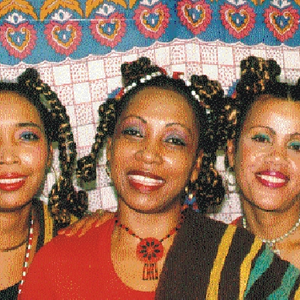
| Trackimage | Playbut | Trackname | Playbut | Trackname |
|---|---|---|---|---|
| 11462048 | Play | Angira | 03:43 Tools | |
| 11462050 | Play | Tema | 03:34 Tools | |
| 11462052 | Play | Sarobaly | 03:39 Tools | |
| 11462068 | Play | Ry ampela | 03:54 Tools | |
| 11462059 | Play | Itoan-draho aba | 03:49 Tools | |
| 11462056 | Play | Fanambalea | 04:24 Tools | |
| 11462051 | Play | Siloke raho ene | 04:13 Tools | |
| 11462053 | Play | Katrehake | 03:07 Tools | |
| 11462070 | Play | Andao ene holy | 02:26 Tools | |
| 11462054 | Play | Anaro ty anake | 04:30 Tools | |
| 11462072 | Play | Inogne ty anto e | 04:30 Tools | |
| 11462055 | Play | Mafe | 03:17 Tools | |
| 11462065 | Play | Mamabe | 05:10 Tools | |
| 11462071 | Play | Benesy | 03:25 Tools | |
| 52753586 | Play | Karatake | 03:25 Tools | |
| 11462069 | Play | Hoa Raho | 04:15 Tools | |
| 11462066 | Play | Rangavaola | 04:27 Tools | |
| 11462057 | Play | Jihe | 02:17 Tools | |
| 11462049 | Play | Taratasy | 02:43 Tools | |
| 11462060 | Play | Vorombe | 03:33 Tools | |
| 11462061 | Play | Mirangatane | 04:09 Tools | |
| 11462082 | Play | Holy Raho | 02:46 Tools | |
| 11462063 | Play | Tiharea | 02:35 Tools | |
| 11462064 | Play | Lomlelale | 03:13 Tools | |
| 11462067 | Play | Kararaoke | 03:42 Tools | |
| 11462073 | Play | Voatse | 04:23 Tools | |
| 11462074 | Play | Belohako | 06:07 Tools | |
| 11462058 | Play | Mainte | 03:13 Tools | |
| 11462076 | Play | Hoe Raho | 04:14 Tools | |
| 11462062 | Play | Rangavola | 04:26 Tools | |
| 11462075 | Play | Taratasy Mena | 02:42 Tools | |
| 11462077 | Play | Lomalelale | 03:12 Tools | |
| 52753587 | Play | Inogne Ty Anto'e | 03:12 Tools | |
| 11462079 | Play | Intoan Draho aba | 03:49 Tools | |
| 11462078 | Play | Voaste | 04:24 Tools | |
| 11462083 | Play | Kathreake | 03:08 Tools | |
| 89307001 | Play | Hoe Raho / This Is What I Say | 03:08 Tools |

-
- 18,612
- plays
-
- 6,256
- listners
-
- 18612
- top track count
Songs about life and love. Intriguing traditional melodies and lyrics and selfpenned compositions. All in the tradition of the Antandroy, the southern inhabitants of Madagascar. Sung by the three sisters Chantal (Talike), Adelaïde (Delake) and Victoire Madeleine (Vicky) Gellé, who accompany themselves on langoro (handdrum) and katsa (percussion). Produced by renowned world music specialist Ben Mandelson. Everybody sings in Madagaskar, on every occasion. When getting up in the morning, during work, with friends in the evening. Songs to share one's joy, to express sorrow, to continue one's work, to protest against injustice to yourself, to declare one's love or friendship. Singing is indissolubly connected to daily life. The Gellé sisters come from a very musical family from the South of Madagascar. Their father is the accordionist in the Ifotake village. He never fails to turn up on official gatherings. Their brother Dadah de Fort-Dauphin is a celebrity on the island -his music is present everywhere. As little girls the sisters sang in a choir that accompanied the local griots (or sairy or mpibeko as they are called in Madagascar) during their ceremonies. They also won prizes at festivals, together with their mother, aunts, brothers and other sisters. Then they went their seperate ways. By coincidence -or by the guiding hand of faith- they met again in Europe two years ago. Singing together again came naturally: songs from their home country and new compositions in the traditional style. They recorded some of these songs and sent the tape to the festival 'Kleurrijk Talent' (colourful talent), a song contest for migrant artists. In 1998 they won the finals with their second concert ever! As a result they were invited for festivals like Dranouter Folkfestival (Belgium), Dunya, Festival Mundial (both Netherlands) and -more recently- to do a showcase on Popkomm in Cologne (Germany). The coming months the trio will be on tour in the Netherlands, Germany (including a showcase on Womex), Austria, Switzerland and France. Tiharea means wealth, not in the sense of money, but on a cultural and spiritual level. The group sings in the language of the Antandroy, the inhabitants of southern Madagascar. The best description for the music is life's poetry. The songs are about homesickness and yearning, love and luck, the injustice of polygamy, your destiny you cannot run away from, about jealousy and the wealth of a life filled with music. Early 2000 the sisters returned briefly to Madagascar to visit their family. They sang, showed the videos of their performances, told about their plans to record a cd. 'Unbelievable', an aunt cried, 'our girls are becoming famous in Europe with their music!' Read more on Last.fm. User-contributed text is available under the Creative Commons By-SA License; additional terms may apply.